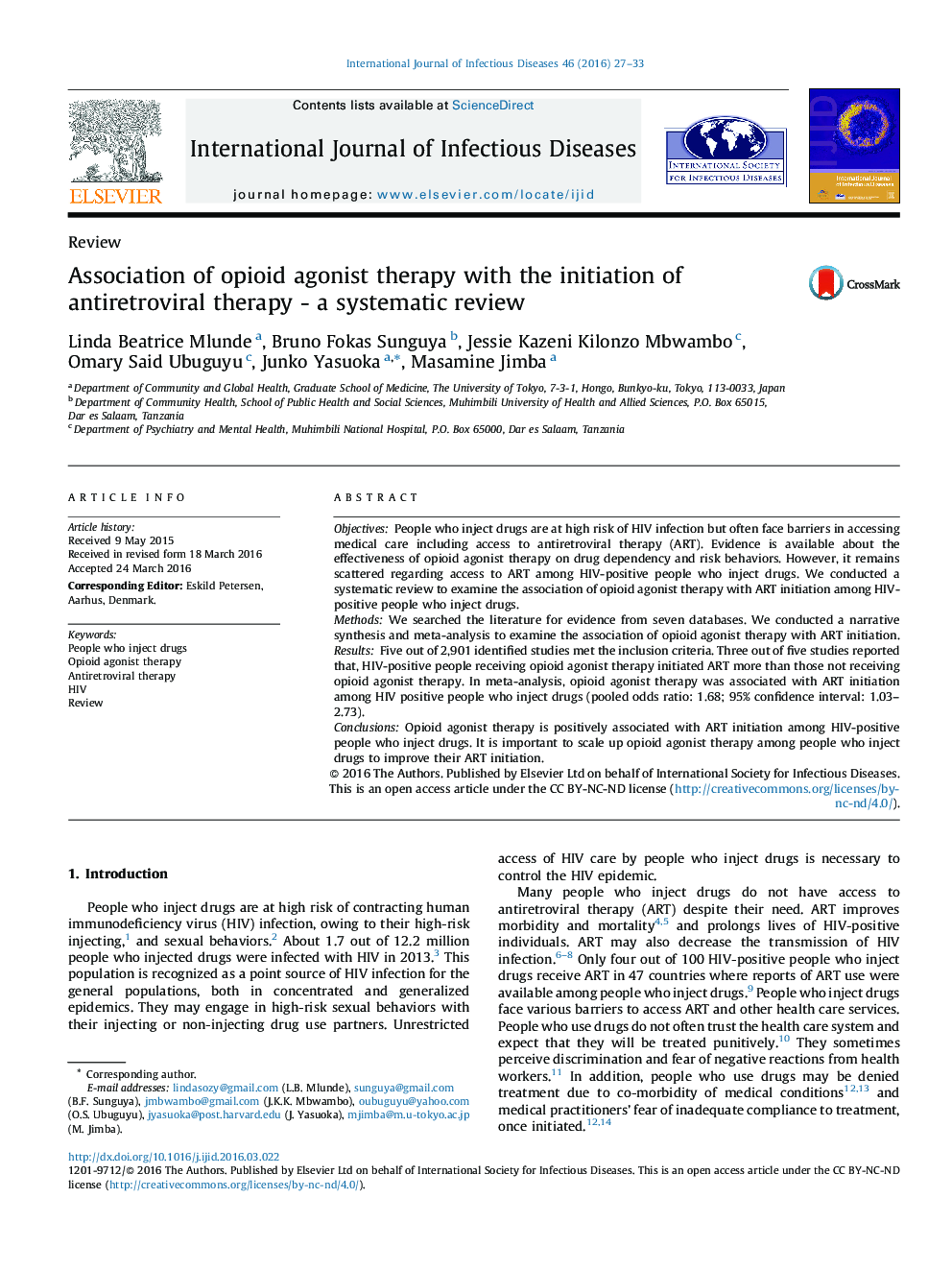| Article ID | Journal | Published Year | Pages | File Type |
|---|---|---|---|---|
| 3361643 | International Journal of Infectious Diseases | 2016 | 7 Pages |
•Five studies met the inclusion criteria for this systematic review.•Three studies reported that HIV-positive people receiving opioid agonist therapy initiated antiretroviral therapy (ART) more than those not receiving opioid agonist therapy.•Opioid agonist therapy is positively associated with ART initiation.
ObjectivesPeople who inject drugs are at high risk of HIV infection but often face barriers in accessing medical care including access to antiretroviral therapy (ART). Evidence is available about the effectiveness of opioid agonist therapy on drug dependency and risk behaviors. However, it remains scattered regarding access to ART among HIV-positive people who inject drugs. We conducted a systematic review to examine the association of opioid agonist therapy with ART initiation among HIV-positive people who inject drugs.MethodsWe searched the literature for evidence from seven databases. We conducted a narrative synthesis and meta-analysis to examine the association of opioid agonist therapy with ART initiation.ResultsFive out of 2,901 identified studies met the inclusion criteria. Three out of five studies reported that, HIV-positive people receiving opioid agonist therapy initiated ART more than those not receiving opioid agonist therapy. In meta-analysis, opioid agonist therapy was associated with ART initiation among HIV positive people who inject drugs (pooled odds ratio: 1.68; 95% confidence interval: 1.03–2.73).ConclusionsOpioid agonist therapy is positively associated with ART initiation among HIV-positive people who inject drugs. It is important to scale up opioid agonist therapy among people who inject drugs to improve their ART initiation.
